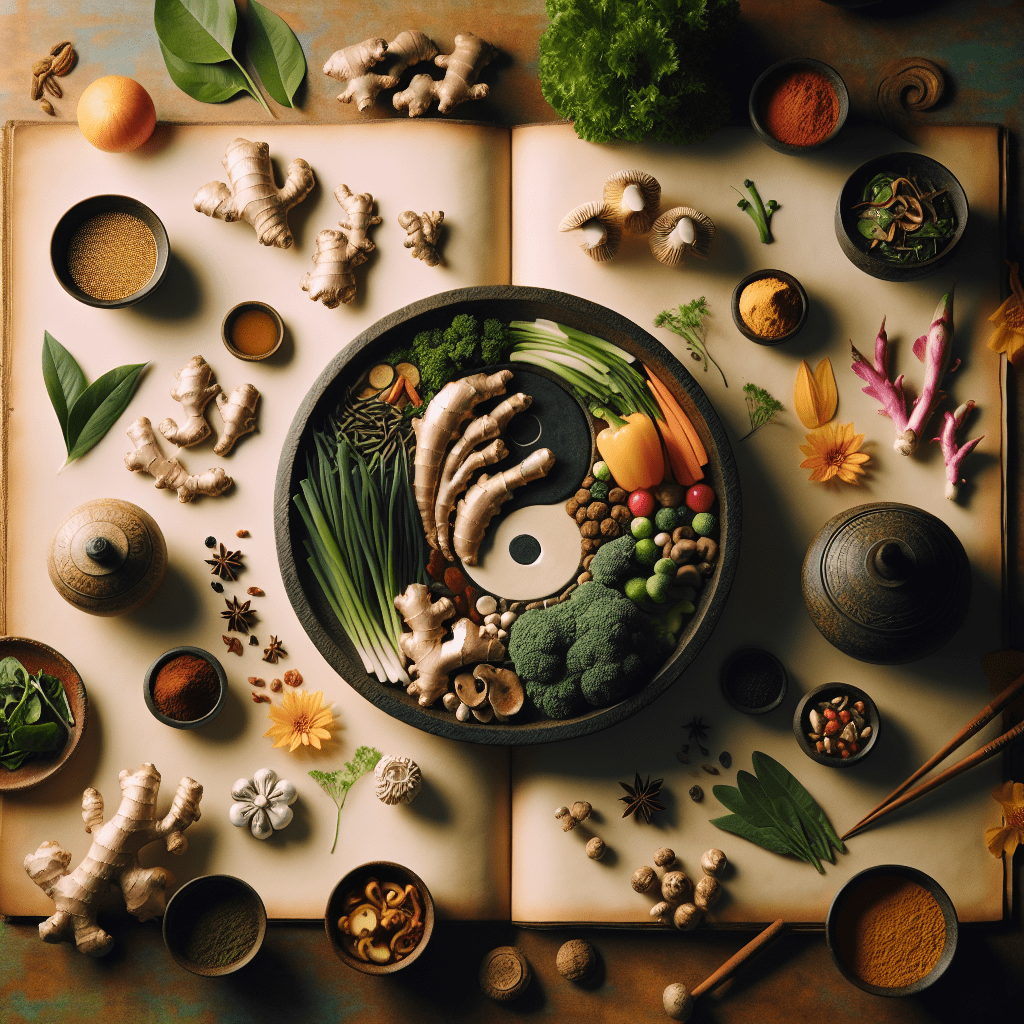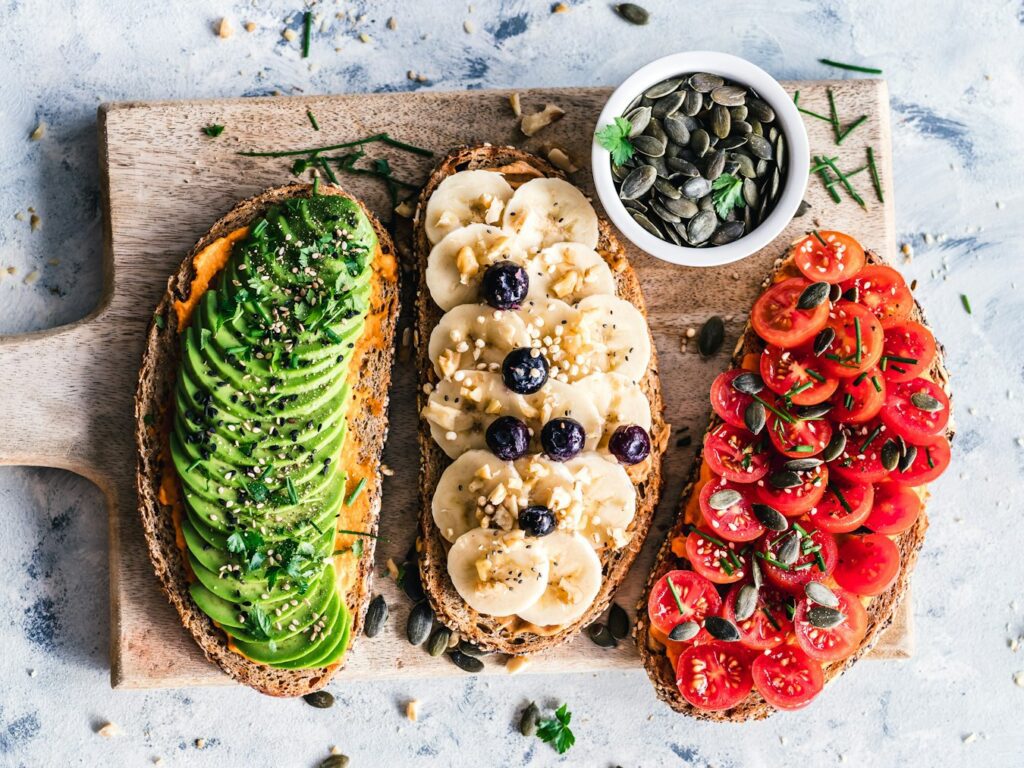In our fast-paced modern world, many of us are turning to timeless wisdom to find balance in our lives. Eastern healing philosophies, with their centuries-old practices and deep-rooted understanding of the human body, have captured the attention of health enthusiasts worldwide. There’s something undeniably compelling about these ancient approaches to wellness that view the body not as separate systems but as an interconnected whole.
Holistic eating, a concept deeply embedded in Eastern traditions, offers more than just nutritional guidance—it presents a pathway to transform your health from the inside out. Unlike trendy diets that come and go, these time-tested principles have sustained entire civilizations for thousands of years. What if the secret to feeling your best wasn’t in the latest superfood or supplement but in wisdom that has been passed down through generations?
Today, I’ll share seven ancient Eastern secrets that could revolutionize your relationship with food and potentially boost your overall wellbeing. These principles aren’t just about what you eat—they encompass how, when, and why you eat, offering a comprehensive approach to nourishment that honors both body and spirit.
Understanding Holistic Eating: More Than Just Food
Holistic eating goes far beyond counting calories or following rigid food rules. It’s a comprehensive approach that acknowledges the powerful connection between what we eat and how we feel physically, mentally, and emotionally. This philosophy recognizes that true nourishment involves feeding all aspects of our being—not just our physical bodies.
In Eastern traditions, food is never viewed in isolation. Instead, it’s seen as one piece of a larger wellness puzzle that includes physical activity, mental clarity, emotional stability, and spiritual connection. When we eat holistically, we understand that each meal is an opportunity to support our whole selves.
“Eastern theory of diet,” as described by scholar Mana Bajra Bajracharya, provides a comprehensive roadmap to achieving health through balanced nutrition and understanding how different foods interact with our unique body compositions. This approach aligns beautifully with modern scientific discoveries about personalized nutrition and the gut-brain connection.
What makes holistic eating particularly relevant today is how seamlessly it bridges ancient wisdom with contemporary health needs. As more people experience the limitations of one-size-fits-all diet plans, this individualized, whole-person approach offers a refreshing alternative that honors the complexity of human health.
Eastern Nutritional Wisdom: Food as Medicine
At the heart of Eastern nutritional philosophy lies a revolutionary concept: food is medicine. Both Traditional Chinese Medicine (TCM) and Ayurveda, two of the world’s oldest healing systems, view diet as a cornerstone of health maintenance and disease prevention.
In TCM, foods are classified according to their energetic properties—whether they’re warming or cooling, moistening or drying. This system teaches that everything in nature, including the food we eat, contains varying degrees of yin (cooling) and yang (warming) energies. A balanced diet includes both energies in proportions appropriate to your constitution and current health needs.
For example, if you’re feeling overheated or experiencing inflammation, cooling foods like cucumber, watermelon, and leafy greens might be recommended. Conversely, if you’re often cold or have sluggish digestion, warming foods like ginger, cinnamon, and well-cooked root vegetables could help restore balance.
Ayurveda, India’s 5,000-year-old healing tradition, categorizes foods according to their effect on the three doshas—vata, pitta, and kapha—which are unique combinations of elements that make up your constitution. An Ayurvedic practitioner might recommend specific herbs and spices like turmeric, cumin, coriander, and fenugreek to balance particular doshas and address individual health concerns. This approach aligns with what modern research on the Ayurvedic diet has validated about personalized nutrition.
Both traditions emphasize seasonal eating—consuming foods that naturally grow during particular times of year—as a way to stay in harmony with nature’s rhythms. They also recognize that digestion is strongest at midday when the sun (and your digestive “fire”) is at its peak, suggesting that your largest meal should be lunch rather than dinner.
These holistic eating principles offer a sophisticated framework for understanding how different foods affect your unique body, going far beyond the standardized nutritional advice prevalent in Western approaches.
The Art of Mindful Eating: Savoring Each Bite
How often do you eat while scrolling through your phone or watching TV? In our distracted culture, mindless eating has become the norm—but Eastern traditions offer a powerful alternative.
Mindful eating is the practice of bringing full awareness to the eating experience. It involves engaging all your senses—noticing colors, smells, textures, and flavors—and paying attention to your body’s hunger and fullness signals. This practice has deep roots in Buddhist traditions but has gained recognition in Western health circles for its numerous benefits.
Research shows that mindful eating can reduce binge eating episodes, improve digestion and nutrient absorption, and help manage emotional eating patterns. Harvard Health notes that this practice results in measurable improvements in both physical and emotional wellbeing. By slowing down and truly experiencing your food, you naturally tend to make better food choices and feel satisfied with appropriate portions.
To practice mindful eating, try these simple steps:
:- Before eating, take three deep breaths to center yourself
- Express gratitude for your food and those who prepared it
- Notice the appearance, aroma, and texture before taking your first bite
- Chew thoroughly and put down your utensils between bites
- Check in with your body halfway through the meal to gauge hunger levels
This approach transforms eating from a mindless activity into a meaningful ritual that nourishes both body and soul. As the ancient Eastern wisdom suggests, how you eat is just as important as what you eat.
Embracing Natural, Unprocessed Foods
Eastern nutritional traditions universally emphasize whole, unprocessed foods as the foundation of a healthy diet. Long before modern science confirmed the dangers of highly processed foods, these ancient systems recognized that foods closest to their natural state contain vital energy or “qi” (in Chinese medicine) that nourishes the body on multiple levels.
A holistic eating approach prioritizes fresh vegetables, fruits, whole grains, legumes, nuts, seeds, and small amounts of naturally raised animal products when desired. These foods provide not just macronutrients and micronutrients but also phytochemicals and antioxidants that support optimal cellular function.
Traditional diets in China, Japan, and India historically included a diverse array of plant foods, with meat often used as a condiment rather than the centerpiece of meals. This plant-forward approach aligns with what modern nutritional science now recommends for longevity and disease prevention.
The macrobiotic diet, which draws from Eastern philosophies, particularly emphasizes locally-grown, seasonal foods that create harmony between body, mind, and environment. This approach minimizes refined sugars, processed oils, and artificial ingredients that can disrupt the body’s natural balance.
By choosing whole foods over packaged products with lengthy ingredient lists, you’re not just following ancient wisdom—you’re giving your body the clean fuel it needs to function optimally and maintain vibrant health.
Personalized Nutrition: Honoring Your Unique Body
Perhaps one of the most profound insights from Eastern healing traditions is that there is no single “perfect diet” for everyone. Both Ayurveda and TCM recognize that each person has a unique constitutional type that influences which foods will promote balance and which might cause disharmony.
In Ayurveda, your dominant dosha—whether vata (air/space), pitta (fire/water), or kapha (earth/water)—determines your ideal dietary pattern. Someone with a fiery pitta constitution might thrive with cooling foods like cucumbers and coconut, while a person with kapha tendencies might benefit from warming, stimulating spices like ginger and black pepper.
Similarly, TCM considers your body’s unique patterns and any existing imbalances when making dietary recommendations. This personalized approach reflects an understanding that we each process foods differently based on our genetics, microbiome, activity level, climate, and current health status.
This individualized perspective aligns perfectly with HerbalsZen’s EASTCHI AI technology, which analyzes constitutional types through Five Element Theory to provide customized nutrition plans. By understanding your unique makeup, you can make food choices that specifically support your body’s needs rather than following generic guidelines.
Modern science is now catching up to this ancient wisdom through the emerging field of nutrigenomics, which studies how foods interact with our genes. What Eastern healers have known for millennia—that personalization is key to effective nutrition—is now being validated by cutting-edge research.
Balancing Body and Mind Through Nutrition
Eastern holistic eating recognizes that what we eat affects not just our physical health but our mental and emotional wellbeing too. Certain foods are understood to nourish the mind and promote emotional balance, while others might trigger anxiety or mental fog.
In TCM, foods like walnuts, black sesame seeds, and leafy greens are traditionally used to support brain health and cognitive function. Meanwhile, Ayurvedic tradition values almonds, ghee (clarified butter), and herbs like brahmi and ashwagandha for their mind-nourishing properties.
Beyond specific foods, Eastern practices emphasize the connection between eating habits and mental clarity. Many traditions recommend a brief meditation before meals to calm the nervous system and enhance digestion. This simple practice helps activate your parasympathetic (“rest and digest”) nervous system, optimizing nutrient absorption and reducing stress-related digestive issues.
The relationship between gut health and brain function—often called the gut-brain axis—is now well-established in scientific literature. Eastern medicine has long recognized this connection, prescribing specific dietary practices to support both digestive strength and mental clarity simultaneously.
By incorporating mindfulness practices around meals and choosing foods that support cognitive health, you can experience improved mood stability, better concentration, and greater emotional resilience—truly nourishing both body and mind through holistic eating.
Seasonal and Local Eating: Nature’s Perfect Timing
Eastern nutritional wisdom places strong emphasis on eating according to the seasons—a practice that connects us to nature’s rhythms and ensures we receive the nutrients our bodies need during different times of year.
This approach suggests that nature provides exactly what our bodies need, when we need it. In spring, bitter greens like dandelion naturally detoxify the body after winter. Summer brings cooling fruits and vegetables high in water content to balance the heat. Fall offers harvest foods rich in antioxidants to prepare for winter, while winter provides root vegetables and warming foods that support immunity during cold months.
In both TCM and Ayurvedic traditions, seasonal eating is considered essential for preventing imbalances that could lead to illness. As the Chinese saying goes, “He that takes medicine and neglects diet wastes the skill of the physician.”
Local eating naturally complements seasonal patterns, as locally grown foods are harvested at their peak nutritional value and require less environmental resources to reach your table. This sustainability aspect of Eastern eating philosophies resonates with modern environmental concerns and HerbalsZen’s commitment to eco-conscious practices.
By aligning your diet with the natural cycles of the year and focusing on what grows near you, you’re not just following ancient tradition—you’re supporting optimal nutrition, environmental sustainability, and the local food economy.
Embracing Ancient Wisdom in Modern Life
As we’ve explored these seven Eastern secrets to holistic eating, perhaps you’ve noticed how intuitive and grounded they feel compared to the often conflicting nutritional advice we encounter daily. These time-tested principles offer a framework that honors both our humanity and our connection to the natural world.
Incorporating holistic eating into your life doesn’t require dramatic changes overnight. Begin by bringing more awareness to your meals, exploring seasonal produce, or experimenting with warming and cooling foods based on how your body feels. Small, consistent steps toward alignment with these principles can lead to profound shifts in your relationship with food and overall wellbeing.
The beauty of these Eastern approaches to nutrition lies in their adaptability. Whether you’re a busy professional, a parent juggling multiple responsibilities, or someone dealing with specific health challenges, these principles can be tailored to your unique circumstances while still honoring their essential wisdom.
By bridging ancient nutritional knowledge with modern understanding, we create a powerful approach to health that addresses the whole person—body, mind, and spirit. This integration reflects HerbalsZen’s core philosophy of combining 2,000-year-old Eastern medical knowledge with contemporary technologies to support true wellness.
As you explore holistic eating, remember that this journey is about connection—to your body’s wisdom, to nature’s rhythms, and to traditions that have sustained human health for thousands of years. Your plate can be more than just a source of calories—it can be a daily opportunity to nourish yourself deeply and honor the profound connection between food and wellbeing that Eastern traditions have always celebrated.



